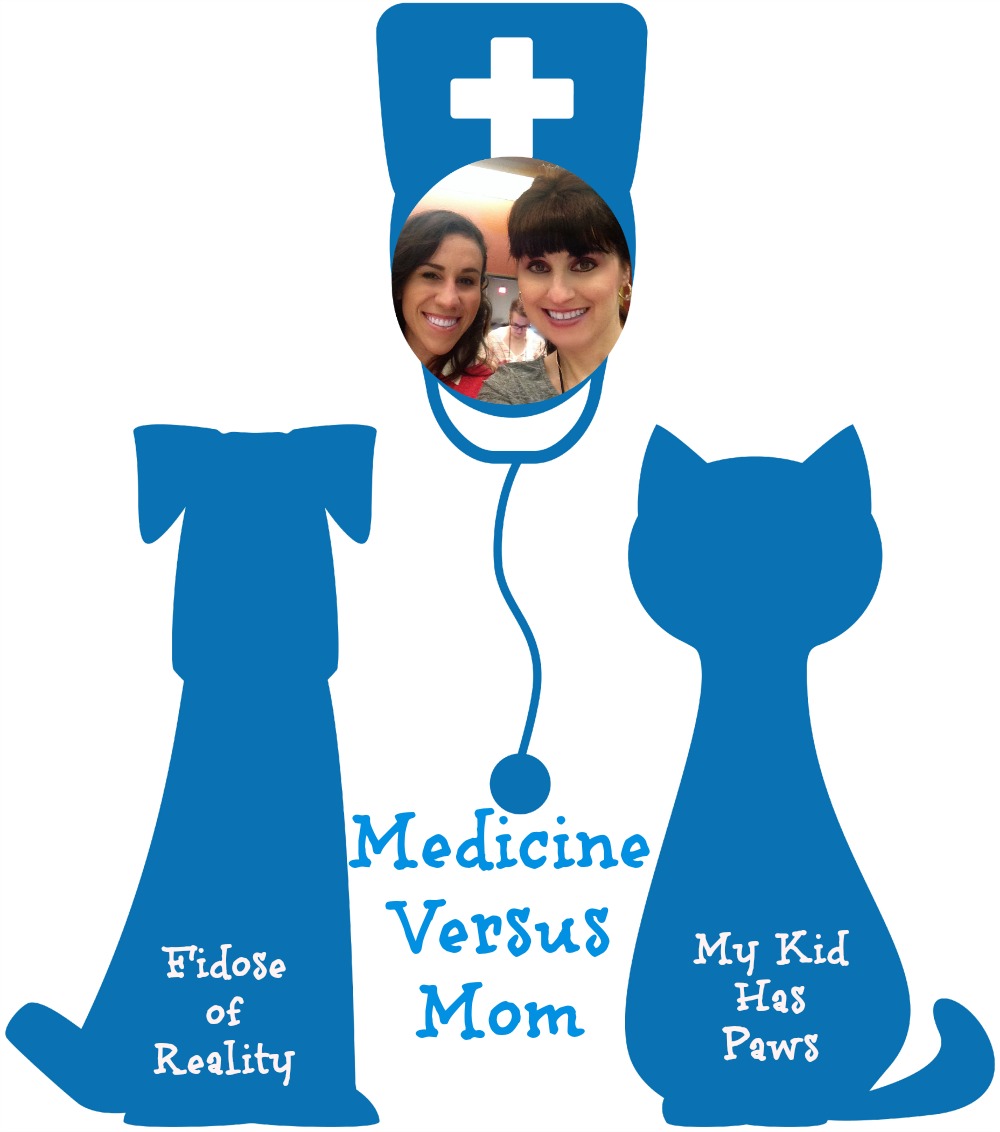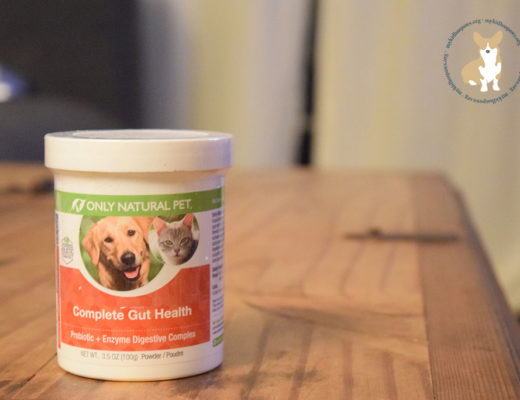Welcome back for another edition of Medicine Versus Mom. While working at the veterinary hospital, I can’t tell you how many overweight pets we had as patients. Statistics would tell you that at least 50% of our patients were overweight and had a poor body condition score. While some pet parents seemed oblivious that their pet’s weight was not ideal, others knew that their dog was gaining weight, but felt that they were doing all the right things (not overfeeding, and providing regular exercise). This issue among pet parents is so common that Carol Bryant from Fidose of Reality and myself thought we would discuss it here today.
Specifically, we want to talk about understanding the difference between canine obesity and hypothyroidism. While both of these diseases are highly treatable in dogs, they do have similar symptoms which could lead to misdiagnosis or assumptions from pet parents about how to improve their dog’s health. I believe that by understanding hypothyroidism and it’s symptoms, you will be able to better understand when your dog needs to have endocrine testing versus needing diet and exercise changes.
What is Hypothyroidism?
According to PetMD:
“Hypothyroidism is a clinical condition resulting from a lowered production and release of T4 and T3 hormones by the thyroid gland. It is common in medium to large-sized dogs, with some being more predisposed than others. “
When the production of the T3 and T4 hormones decreases, it causes the processes and the functions of all organ systems in the body to slow down. Including, your dog’s metabolism. Hypothyroidism is commonly diagnosed between the ages of 4 and 10 years old, and some breeds (listed below) are more prone to the disease than others:
- Golden Retriever
- Doberman Pinscher
- Irish Setter
- Miniature Schnauzer
- Dachshund
- Cocker Spanial
- Airedale Terrier
What are the symptoms associated with Hypothyroidism?
According to the Merck/Merial Manual for Pet Health, the symptoms associated with hypothyroidism include:
- Lethargy
- Unwillingness or inability to exercise
- Weight gain
- Dry coat or skin
- Excessive shedding
- Hair thinning or hair loss
- Reoccuring skin infections
What causes Hypothyroidism to occur?
According to PetMD, hypothyroidism usually occurs because the thyroid gland has been destroyed by an abnormal immune reaction. In most cases (95%) hypothyroidism is due to the destruction of the gland itself, however, in a small number of cases it is due to a tumor of the pituitary gland (Merck/Merial Manual for Pet Health).
How is Hypothyroidism diagnosed?
Traditional diagnosis requires endocrine testing (measuring the amount of thyroid hormone your dog has available) of the T3 and T4 hormones.
What is the treatment for Hypothyroidism?
Traditional treatment for hypothyroidism requires providing your dog’s body with the synthetic version of the hormone they are lacking.
The deficient hormones are given in synthetic form, with the dosage adjusted occasionally based on your dog’s individual physical condition and progress. Most clinical symptoms will resolve after a few months, but only your veterinarian can determine whether your dog’s medicine dosage should be adjusted or changed. To avoid complicating the condition, do not change the type or dosage of the drug yourself, and never give anything new to your dog without first consulting with your veterinarian. This caution includes the use of herbal remedies.- PetMD
How to know when its just weight gain…
When I was studying Animal Science at UC Davis, I specifically remember learning that Hypothyroidism, while not a rare disease, was being over diagnosed in veterinary medicine. In an article written by Dr. Patty Khuly in 2008, she alluded to the over-diagnosis of this disease mostly based on the idea that people didn’t want to admit that their pets were simply gaining weight.
Not only do I find this disease of slow-metabolism to be one many of us humans wish we had (especially when at a loss to explain why we gained so much weight over the holidays)—hypothyroidism is an illness pet owners increasingly want their overweight pets tested for.
I can’t blame pet parents for wanting their dogs to be tested for hypothyroidism, especially when they feel that they have done all of the right things to care for their dogs. But, if your dog’s hormones are balanced, we don’t want to give them medication they don’t need.
So, how can you be sure that your dog is receiving the right diagnosis?
According to Dr. Jennifer Coates, if your dog has symptoms associated with hypothyroidism, and bloodwork has revealed low thyroid levels, and all other clinical signs have been ruled out, then it is appropriate to tentatively diagnose your dog with hypothyroidism. The true test will be your dog’s responsiveness to the medication. If repeat testing shows that your dog’s hormone levels have returned to normal, than your dog is truly hypothyroid and should continue on the medication per your veterinarian’s recommendations.
Misdiagnosis can occur for a variety of reasons:
Because dogs that are sick with diseases completely unrelated to the thyroid gland often develop low thyroid hormone levels. The condition is called euthyroid sick syndrome, and it does not require thyroid hormone replacement therapy. What is really needed is an accurate diagnosis and treatment aimed at the underlying problem, but this is sometimes easier said than done!
In conclusion, it is important for pet parents to be honest with themselves. Is your dog gaining weight? Or are there other symptoms on this list your dog is experiencing? Have you tried adjusting their diet and exercise? Is someone else in your house overfeeding your dog (you would be surprised how often this happens)?
If you truly feel that your dog is experiencing symptoms of Hypothryoidism, definitely take them to visit your veterinarian and be prepared for bloodwork testing.
I highly recommend visiting Fidose of Reality to hear Carol’s Dog Mom perspective on this topic!





M. K. Clinton
September 5, 2017 at 3:58 pmMy Golden Retriever had hypothyroidism and we took the same medicine to treat it. LOL!
M. K. Clinton recently posted…The Bayou Boys Found Wild Boar & Kale Treats
GROOVY GOLDENDOODLES
September 6, 2017 at 6:05 pm:Interesting and informative information. Thanks so much for putting this together. There are a few friends I know would be interested based on their breed of pets. I will share.
Rachel
September 13, 2017 at 12:54 pmThank you so much Cathy!